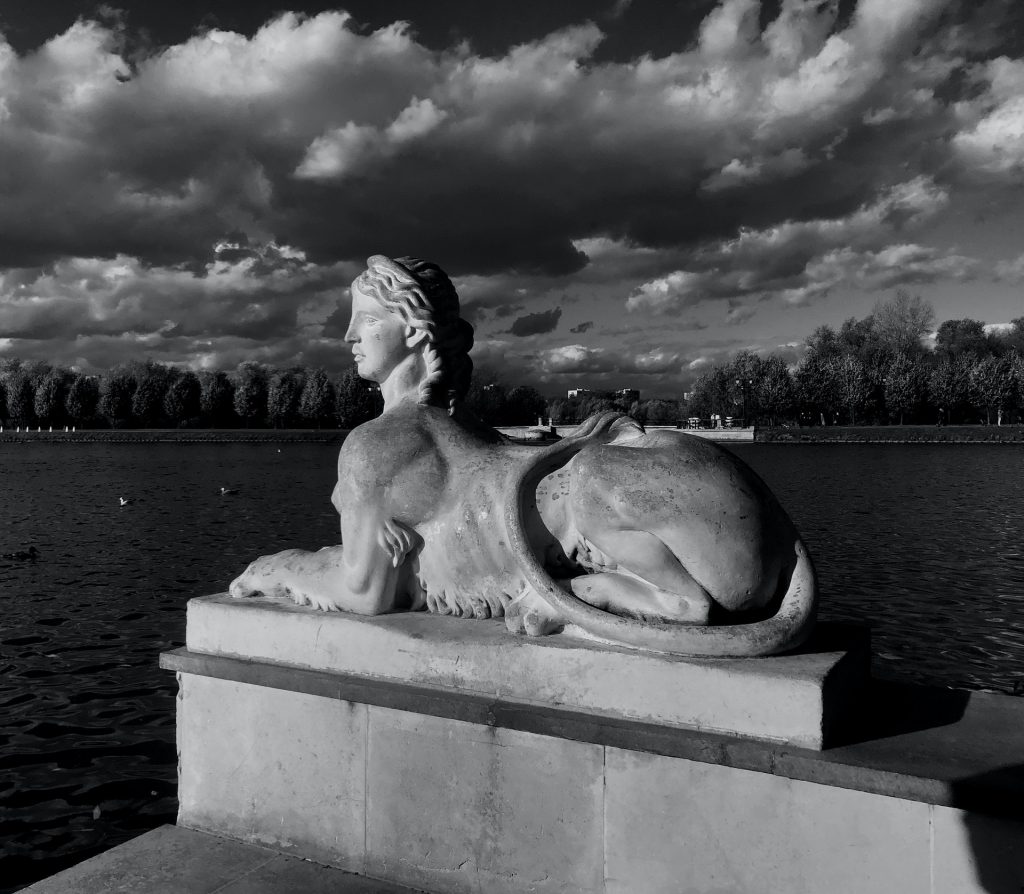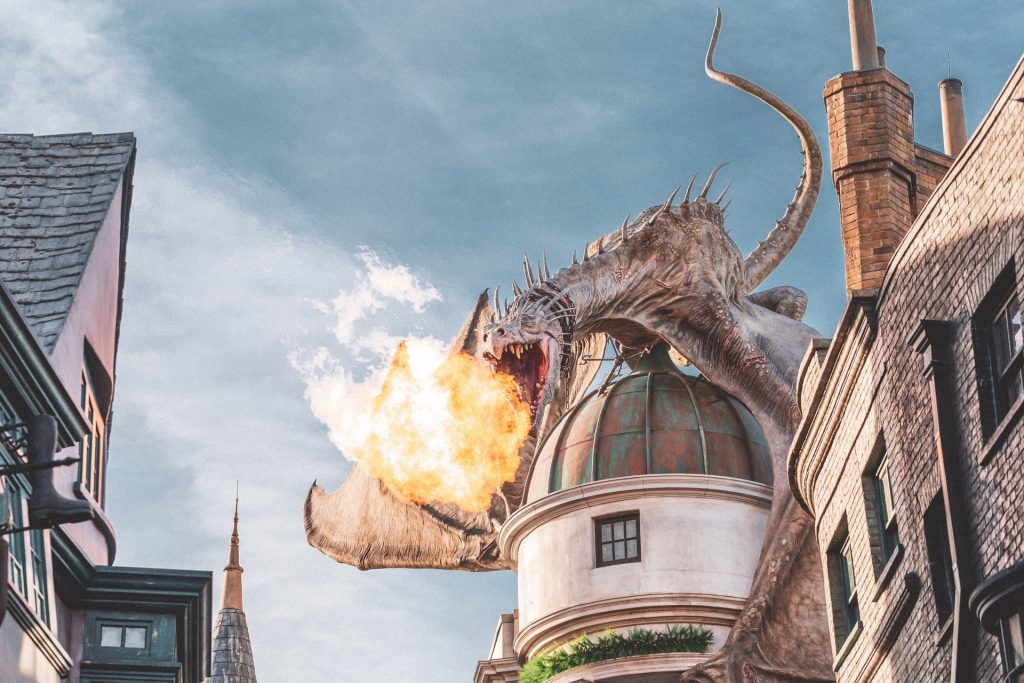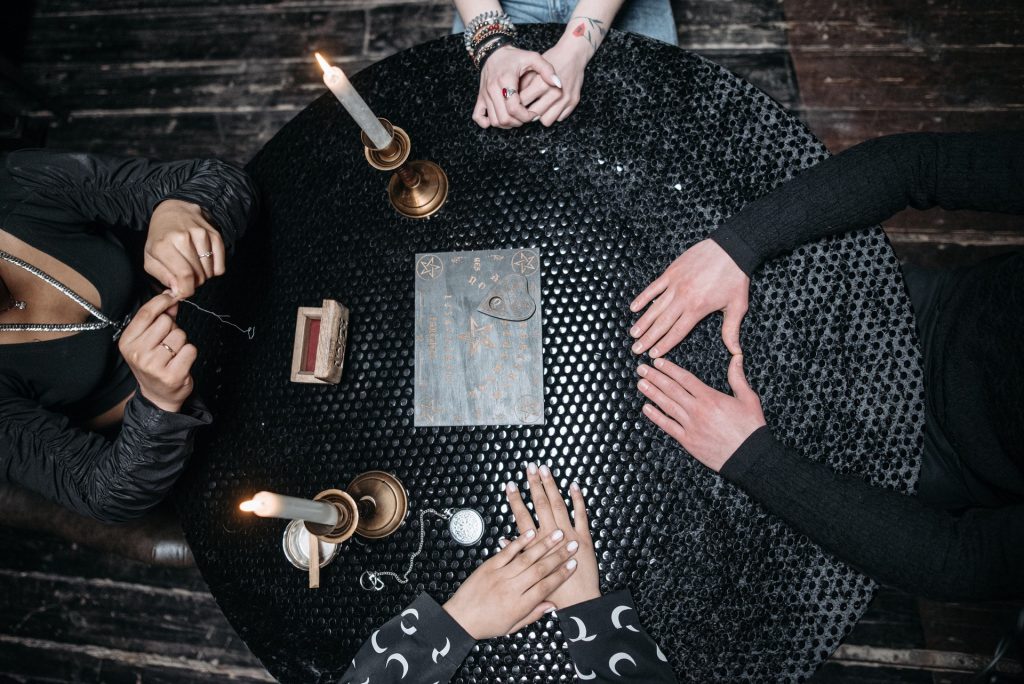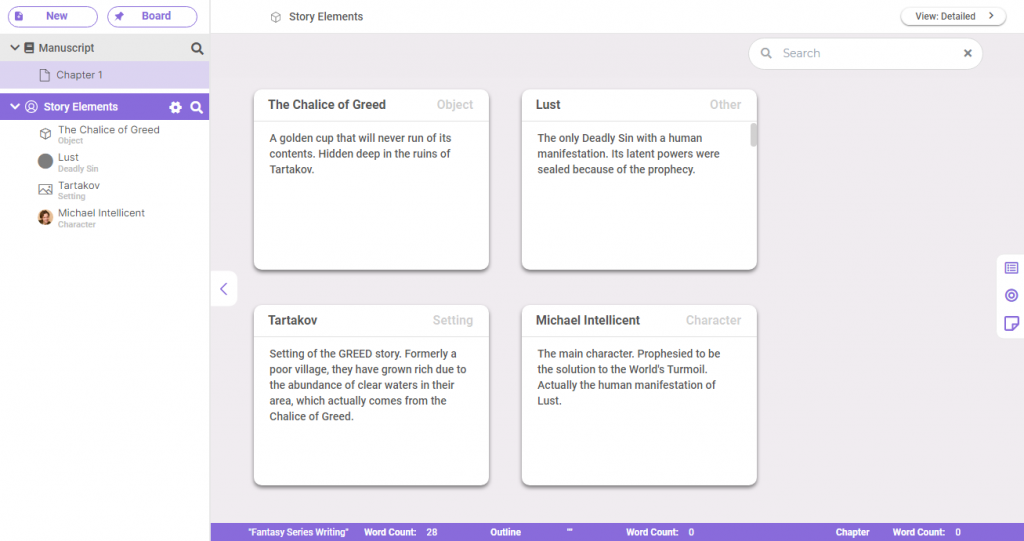How to Write Urban Fantasy with LivingWriter

Urban fantasy is seemingly an oxymoron; how could magic, often depicted to be the thing of old fictional myths and legends, exist in a world as advanced and modern as the one we have right now? Yet that is exactly the premise of this widely popular fantasy subgenre: what if they were all real?

Urban fantasy mixes in the fantastical and the supernatural with the modern and technological. Alongside your frantic office workers and friendly neighborhood old lady, vampires and elves exist, maybe in a glamoured cafe or in an abandoned building.
The interesting setups of urban fantasy novels have earned them a large fanbase, with many famous titles and series under the subgenre, such as The Dresden Files series, The Shadowhunter Chronicles series, and the Kate Daniels series.
If you want your work to join this list, then you’ve come to the right place! We’ll help you write an amazing urban fantasy novel, covering all bases while giving you additional advice on how LivingWriter can help you write more conveniently.
The Definition of Urban Fantasy
Urban fantasy is a subgenre of fantasy where common fantasy elements exist in a modern setting, often in a metropolitan city. Because of the unconventional combination, most urban fantasy novels put a twist on current information about certain fantastical beings to explain their existence, or at times cohabitation with normal humans, in the metropolis.

Urban fantasy often takes on a similar atmosphere as noir and police procedurals, as both subgenres are about solving crimes or mysteries. However, urban fantasy stories will most definitely highlight more on fantastical crimes that cannot be resolved by mundane means.
Urban fantasy can also easily be mistaken to be the same as paranormal/supernatural romance, as both often sport romantic tones and plots. Their main difference often lies on how much romance is focused: urban fantasy’s romantic themes are often secondary to the main plot, while paranormal romance features it as their main theme.
Now that you understand urban fantasy, it’s time to know how to write one!
How to Write Urban Fantasy
The Urban Place…
One of the first things you might want to consider before writing an urban fantasy novel is the setting of your story. Although most urban fantasy stories feature busy cities like New York and Las Vegas, you can opt for more lowkey locations, as long as it is familiarly populated.
A key feature of urban fantasy is the juxtaposition of the normal and the fantastical, so naturally you need to have, at the very least, an almost-personal knowledge of the city. This can be a great excuse to go into that much-wanted vacation you’ve wanted for this year!
Although you do have the option of writing about a fictional city, we highly recommend you to choose a real-life location to base your urban fantasy on. Aside from having an easy reference about the setting, publishers can also take advantage of this fact in their marketing.

There will be a lot of things that you will want to research while you’re in the city. The physical layout of the city, as well as its prominent establishments, is going to go to number one on the list. We recommend that you draw or grab a detailed copy of the city map, which will be your main resource material once you’re starting to write your early drafts.
You also want to know the feel of the city. Bask in the atmosphere of the lively days, and melt in the embrace of the calming nights. Where is the energy coming from at daytime, and where do people recede to once the night comes?
Be on the lookout for interesting locations or even urban legends, as they can be easy references for the fantasy side of the city.
If the city has an air of noir mystery, explore the dark underbelly as safely as you can. Interacting with the locals can help you glean a bit of this information, and also just help you get a personal feel of the population living inside that city.
By the time you have explored the city, you should have had an idea of how your main character, whether a visitor or a local, should navigate through the cityscape.
…in the Fantastical Setting
After understanding the ins and outs of the city setting, now you want to incorporate the magic into it. You can do it either one of two ways: portraying the city as is, with the magic settling in the background, or the other way around, which is portraying the city as seen through the magical side of the population.
A question you might want to ask is how magic is presented in your novel. If magic is unknown and hidden from the general public, you need to explain how it is hidden and how one may gain access to the magical locations. Think something like Platform 9 ¾ in J.K. Rowling’s Harry Potter series.

If magic is known to the city, then you need to show how it changes the city compared to the one we have in real life. For example, in the Kate Daniels series, magic and technology alternate in strength, with one losing effectiveness while the other is gaining strength.
You can then proceed with worldbuilding: the process of establishing the fictionalized version of the city, where the main story will take place. Your city research will come in handy, as well as all tips for worldbuilding in fantasy here.
Worldbuilding will also include the fantastical beings that will be coexisting with the normal humans. Although a minor note, you should still consider your choice of myths and legends that come alive in your fictionalized city. Angels and demons are bog-standard combos, but mixing in vampires and angels can be quite jarring, so you need to have a pretty good explanation as to why they’re both there.
Establishing the Conflict
Urban fantasy often thrives on a central conflict, and the entire premise of urban fantasy being inherently oxymoronic gives you a lot of ideas to work with as conflict. There are a lot of tropes of conflicts in the urban fantasy subgenre that you can build upon, such as supernatural crimes, Doomsday scenarios, immoral deals with evil entities for more powers, and whatnot.

Most commonly, if magic is hidden from the usual world, these conflicts revolve around magical situations that spill into/affect the unknowing “normal” world, and the main character attempts to resolve these issues to ensure the harmonic coexistence of the two realms in the same city. If you plan on using this trope (or any trope for that matter), don’t forget to add your own twist to it!
Identifying your novel’s main conflict is also important if you plan on writing a series, as you will be dealing with a major arc containing the central conflict of the series, as well as the prominent conflict in the current novel. It should be noted that it is rather easier to write a series with urban fantasy novels, and some publishers might even encourage you to write a novel into a series. In that case, you should take advantage of this and approach a bigger conflict for your series.
Another note to consider in urban fantasy are the subplots. More prominently, the romantic subplot is a very common theme in the subgenre, if not a staple. Although it can become increasingly hard to differentiate urban fantasy with romantic undertones and paranormal romance, as long as romance remains a subplot to the story.
The best part of romantic subplots in urban fantasy is the number of possibilities that come up with normal-supernatural relationships, which can be great in fleshing out your main characters and making them more alive in the universe. Looping in a pinch (not a lot) of paranormal romance, which is a validly popular subgenre, to your urban fantasy can be beneficial than having none at all.
The Character Cast
Much like any other novel, the main character can make or break your story, so you need to make very special consideration for your protagonist. In urban fantasy, the main character will almost be a part of the magical world, maybe through their latent powers or through accidental exposure to the magical world.
All characterization tips apply to urban fantasy, such as having a relatable, layered and complex, and dynamic main character. Your reader will have to root for this main character, so you have to make sure that your protagonist deserves the support. This will be especially true if your story spans across a long series.
As with any fantasy subgenre, you also need to keep a tab on the objective power levels of your characters, especially your main character. More often than not, your main character should not be overpowered, having access to magical techniques that can poof their problems away, or else a story wouldn’t be formed from it (unless you know what you are doing). Avoiding deus ex machina plot devices is a standard fantasy tip, and it is true for urban fantasy as well.
Another character consideration is about personifying certain areas into archetypal characters. For urban fantasy that spans multiple cities and countries, you want to do this for your secondary characters, as they allow you to create a conceptual relationship between the area and the character. This makes your city setting “alive” through the representative characters.
If you want to have an easy way outlining your main character and the rest of the cast, you can use LivingWriter’s powerful Story Elements feature for it! Enabling you to write notes to your heart’s content, embedding images for visual inspirations, and deep integration with the LivingWriter manuscript, there’s just no better way to write character notes than with Story Elements.

Write Urban Fantasy with LivingWriter
Urban fantasy has been taking off well lately, with a lot of popular titles popping out left and right, indicating an active readership that you might want to take advantage of. We hope that these tips on urban fantasy writing will help you on writing your next book, and we are looking forward to you trying out LivingWriter just for you to see how great of a writing companion it is!
Try LivingWriter now!